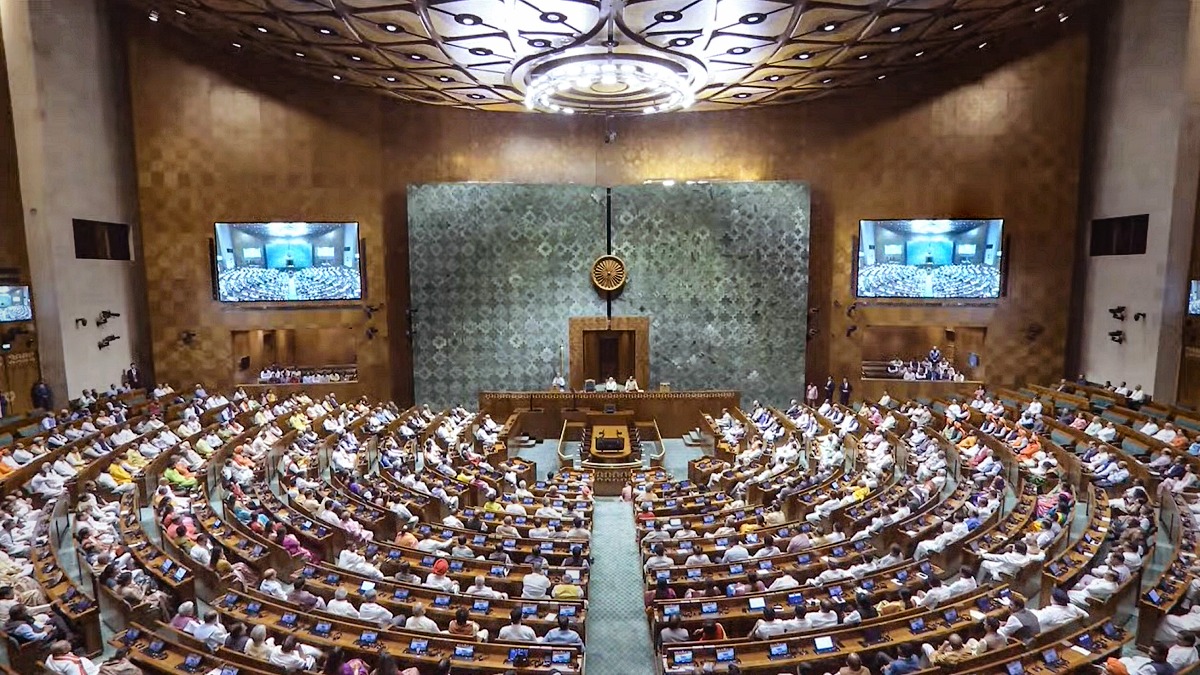Om Birla has once again been elected as the Speaker of the Lok Sabha, marking the fifth instance where a Lok Sabha Speaker has been re-elected. Representing Kota, Rajasthan, Om Birla’s election this term was particularly intriguing as the opposition's India Block unexpectedly nominated K. Suresh in the Speaker's election at the last minute. Nonetheless, Om Birla was elected by acclamation.
But the play is far from over. Om Birla may have secured the position of Lok Sabha Speaker, but who will be the Deputy Speaker? This decision is still pending.
The opposition India Block is steadfast in its demand for a Deputy Speaker. However, the NDA government is currently not inclined to concede this position without an election. This stance led the opposition to field its candidate in the Speaker election. Congress Rajya Sabha MP Pramod Tiwari commented that our symbolic and democratic opposition was because they (NDA) weren't offering us the Deputy Speaker's post. Mahua Majhi, MP from Jharkhand Mukti Morcha, also said that elections for Speaker wouldn't have been necessary had the government agreed to grant the Deputy Speaker's post.
Congress MP and now leader of the opposition Rahul Gandhi had also stated that the opposition was ready to support the NDA’s candidate for Speaker if the government would grant us the Office of the Deputy Speaker.
Typically, the role of Lok Sabha Speaker is held by the ruling party or coalition, while the opposition is given the Deputy Speaker's position. From 1990 to 2014, the opposition consistently held the Deputy Speaker's post. However, from 2014 to 2019, it remained with the ruling coalition. Interestingly, from 2019 to 2024, the Deputy Speaker's position stayed vacant.
Is the Deputy Speaker’s Role Necessary?
Under Article 95(1) of the Constitution, in the Speaker's absence, the Deputy Speaker chairs the house proceedings, endowed with all the powers of the Speaker.
Article 93 emphasizes the prompt appointment of both the Speaker and the Deputy Speaker as soon as possible after an election.
However, the Constitution sets no specific timeline for these appointments, which is why while Speakers are appointed posthaste, the position of Deputy Speaker often remains unfilled.
Does the Deputy Speaker’s Post Traditionally Go to the Opposition?
It's not a given. From 1952 to 1969 during which the center was held by Congress, all four Deputy Speakers were from Congress. The Deputy Speaker from 1969 to 1977, G.G. Swell from the All Party Hill Leaders Conference, was indeed a member of the opposition in Lok Sabha. From 1997 to 1979, during the Janata Party regime, a Congress member held the Deputy Speaker post.
During Indira Gandhi's term from 1980 to 1984 and Rajiv Gandhi's term from 1985 to 1989, the Deputy Speakers were from DMK and AIADMK respectively, both allies of the government at the time.
From 1990 until 2014, each term witnessed the opposition holding the Deputy Speaker's chair. In 2014, when Modi's government came into power for the first time, M. Thambidurai of AIADMK was elected Deputy Speaker, an NDA constituent at that time.

Source: aajtak
Why Does the Opposition Covet the Deputy Speaker’s Post?
The Deputy Speaker plays as crucial a part as the Speaker. According to Article 95 of the constitution, it’s the Deputy Speaker who assumes the Speaker’s duties when that seat is vacated or in their absence.
Should the Deputy Speaker's chair remain vacant and the Speaker also be absent, the scenario necessitates an MP appointed by the President to oversee the house’s proceedings. The constitution equips the Deputy Speaker with as much authority as the Speaker himself.
The opposition seeks the Deputy Speaker’s position as it is now reportedly more robust and united compared to past elections. While it was weaker in 2014 and 2019, in 2024 the opposition boasts nearly 250 seats. Previously, despite the opposition's demands, the Deputy Speaker’s role remained unfilled. By obtaining the Deputy Speaker’s post now, the opposition wishes to demonstrate its strength and unity.
The opposition also demands the role of the Deputy Speaker to prevent an election. If an election occurs, NDA's superior numbers predominate, reducing a Deputy Speaker’s election to a mere formality. Therefore, the opposition wants the government to accede to its request and voluntarily assign the Deputy Speaker’s post.
How Significant Is the Deputy Speaker's Role?
The offices of Speaker and Deputy Speaker hold substantial influence. While the Speaker is generally the supreme authority of the house, the Deputy Speaker wields full powers in their absence.
If the Speaker wishes to resign, they must submit their resignation to the Deputy Speaker, and vice versa. Should the Deputy Speaker’s chair be empty, the resignation is then submitted to the Lok Sabha Secretary-General.
The Speaker’s resignation protocol sparked a constitutional assembly debate in 1949. KV Kamath proposed the resignation should be directed to the President instead of the Deputy Speaker. Dr. Ambedkar, however, contended that a person hands their resignation typically to the appointer, hence a Speaker to a Deputy Speaker and vice versa.
Moreover, if a vote results in a tie, the Deputy Speaker holds the same deciding vote privilege as the Speaker.
When Will the Deputy Speaker Election Occur?
There’s no set timetable. While the President determines the date for the Speaker’s election, the Lok Sabha Speaker schedules the Deputy Speaker’s election.
In the 12th Lok Sabha, PM Sayeed assumed his position on the 270th day post the Speaker’s election. Before this, in the 11th Lok Sabha, Suraj Bhan was elected Deputy Speaker within 52 days. M. Thambidurai was elected on the 71st day in 2014.
The election procedure for the Deputy Speaker mirrors that of the Speaker, with a motion passed in the house if only one candidate is proposed. If multiple candidates stand, a vote is conducted. Only a Lok Sabha member is eligible for the Speaker or Deputy Speaker post, serving a five-year term.




